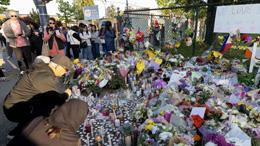Madness on Our Streets: The Lapu Lapu Festival Tragedy

Commentary
By Mata Press Service
A teacher. A badminton and tennis coach. A five-year-old kindergarten student. A wife. A mother.
These are just some of the lives lost during the horrific attack at Vancouver’s Lapu Lapu Day festival on April 26, when an SUV plowed into a crowd gathered to celebrate Filipino culture, music, and food. Eleven people were killed, their ages ranging from five to 65. All but two were women.
The man behind the wheel of the SUV that tore through the Filipino community’s Lapu Lapu Day celebration is not a terrorist or career criminal. He is someone with a long and well-documented history of mental illness, who should have been in care, not behind the wheel.
And that’s the true crime here: not just what happened, but the system that allowed it to happen.
We now know the accused had dozens of interactions with both police and mental health professionals in the months and years leading up to the attack. We know a family member called a psychiatric ward hours before the incident, begging for help. And we know that just the day before, another mental health-related police contact somehow ended with no hospital admission. The warning signs were not missed—they were ignored.
This tragedy is not an isolated incident. Just ten days before, a Toronto tourist was randomly attacked on Vancouver’s seawall. In that case, the suspect’s mother had pleaded with police to hospitalize her son. He ended up in jail instead. It’s a familiar story in British Columbia: a person in crisis, desperate relatives, overwhelmed systems, and a violent outcome that might have been prevented with timely, appropriate care.
So, the question isn’t whether the system is broken. The question is: how many more people need to die before we fix it?
In B.C., police have become the de facto front line of mental health response. More than 30% of individuals with serious mental illness encounter law enforcement during their first attempt to access care, according to a BC Early Intervention Study. Not because they’re criminals, but because the health system won’t see them until they’re in full crisis.
It’s a policy of denial disguised as compassion. Hospital beds for psychiatric care have been slashed over the years in the name of deinstitutionalization—a movement that promised community-based care instead. But that care was never adequately funded. The result? Vulnerable individuals are left to spiral in isolation until their suffering erupts in tragedy, either for themselves or others.
Estimates suggest 15–40% of those in the criminal justice system suffer from untreated mental illness. This isn’t justice. It’s abandonment.
Let’s be clear, most people living with mental illness are not violent. In fact, they’re far more likely to be victims of violence than perpetrators. But there is a small subset, often those with untreated schizophrenia or severe concurrent substance use disorders, who are at risk of harming themselves or others. Ignoring this reality is not progressive. It’s dangerous.
Premier David Eby has begun expanding involuntary treatment facilities and announced 10 new beds for high-risk patients in custody. But this is barely a first step. Vancouver Police and Mayor Ken Sim are right to call for a more robust approach, one that offers mandatory care when people are too ill to recognize their need for it.
What makes the Lapu Lapu festival massacre especially infuriating is that it was preventable. The man now facing murder charges didn’t fall through the cracks. He was known. He was flagged. He was, at least on paper, being monitored.
But systems that treat psychiatric illness as a legal matter rather than a medical one will always default to containment over care. As former Vancouver police chief Bob Rich noted in his report on another stabbing by a mentally ill offender, “Some patients may never be well enough to live unsupervised in the community.”
That isn’t a condemnation. It’s a call to reality.
We’ve spent decades dismantling institutions with no clear plan for what comes next. The result is visible on our streets, in our emergency rooms, and now, tragically, in our headlines.
Mental illness does not excuse violence. But our collective failure to treat it certainly enables it. If we truly want to honour the lives lost at the Lapu Lapu festival, we must build a mental health system that treats suffering before it becomes slaughter.






